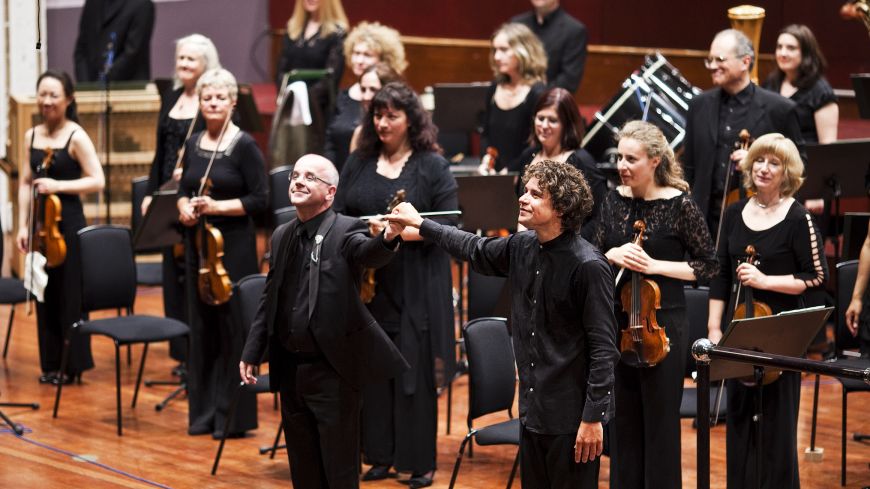
The concert at the Usher Hall with the Scottish Chamber Orchestra opened with Ravel's composition Le Tombeau de Couperin. Originally for piano, Ravel had started to write it in 1913, but war intervened and the composition - in six movements - wasn't completed until 1918.
His mother and many of his friends had died during the war and he dedicated the six pieces to lost companions. A year later he composed an orchestrated version of four of the movements - Prelude, Forlane, Menuet and Rigaudon. Despite the poignancy attached to the piece, Le Tombeau de Couperin possesses Ravel's distinctive compositional style - a lightness, a frivolity, similar to spring awakening - and Robin Ticciati, the Principal Conductor of the SCO, brought out the best in the orchestra. Under his baton, their subtle playing enhanced the characteristics of the music.
Next on the programme was the World Premiere of Blossoming II by the Japanese composer Toshio Hosokawa. Commissioned by the EIF, Blossoming II is imbued with the essence of Japanese mysticism. As Hosokawa commented: "I am searching for a new form of Japanese spiritual culture and music, one through which I can remain true to myself as well as to my origins."
The piece begins with a sustained note played by the strings. Barely audible, it sets the tone for this spiritual journey, inspired by the Buddhist symbol of a white lotus blossom which when it comes into flower signifies full enlightenment. And the music, with its exquisite haunting and delicate passages which build up to a crescendo, mirrors the progression from embryonic state to full blossom. A beautiful composition, Hosokawa received a marvellous reception from the audience.
The final composition was Maurice Durufle's Requiem. Written in 1947, in memory of his father, this seldom performed work for orchestra, chorus, mezzo-soprano and baritone, is magnificent. Inspired by themes from the Gregorian 'Mass for the Dead' it consists of nine sections.
The tender introduction with the orchestra and choir is beautiful and as the piece progresses it at times swells to thrilling crescendos. The Kyrie, sung by the rich mezzo-soprano voice of Sophie Koch (who replaced Magdalena Kozena at short notice), is full of passion with its ponderous strings and imploring words: "Lord, have mercy. Christ, have mercy. Lord, have mercy." And Simon Keenlyside's full baritone voice blended beautifully with the choir. And the National Youth Choir of Scotland, under the guidance of Christopher Bell, were superb. Their voices fluctuated magnificently from pianissimo to fortissimo.
Ticciati, who is becoming renowned as a conductor of choral works, so adeptly elicited from the orchestra and choir the profound emotion in this very moving Requiem. And at the end, Ticciati held the audience in the palm of his hand as we waited, in silence, for him to eventually lower his baton in reverence to the music.
Event: 21 August, 2011

